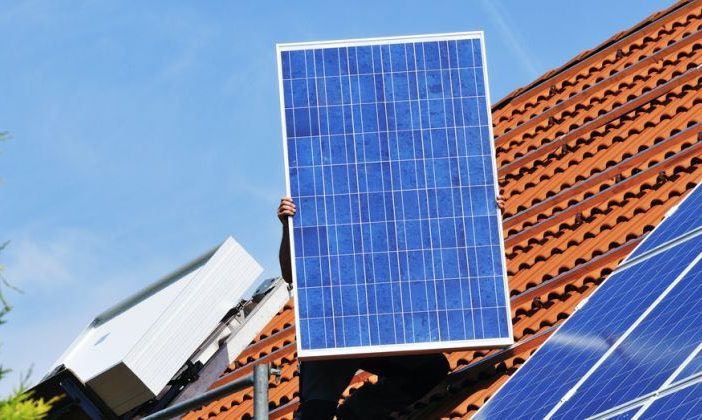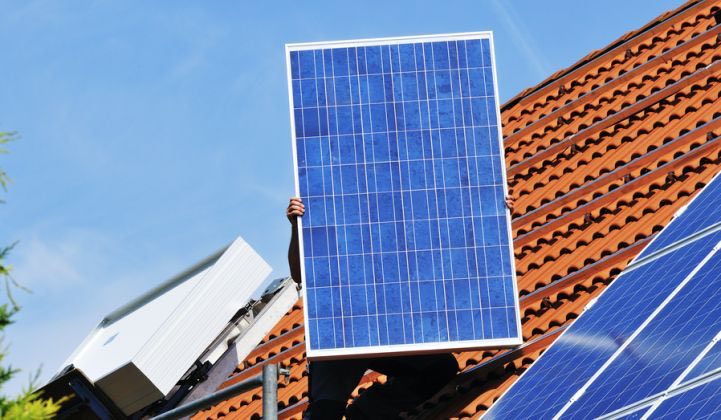
Happy news for the Australian rooftop solar industry this week, with most businesses in the recently locked-down southern states – and the still-locked-down parts of New South Wales – allowed to return to work.
As Sydney-siders digest the reality of another month in lock-down, the local rooftop solar industry has been handed a slight reprieve, just as restrictions on installations ease in both Victoria and South Australia.
The NSW government said on Wednesday that despite ongoing stay-at-home orders for large segments of the state’s population, construction work – including rooftop solar and battery installations – could largely resume, starting this Saturday (July 31).
The new freedoms for Greater Sydney come with important conditions, however, designed to continue the effort at getting the whole state out of lock-down and back to business.
These conditions were outlined for the solar industry by the Smart Energy Council, in an emailed notice to members on Wednesday, with the full details available here.
The SEC notes that Covid safety measures in Greater Sydney include controls on movements between sites, reduced contact between workers within sites, improved tracing capability and a focus on encouraging workers to get vaccinated.
Works in occupied premises, including households, can also resume from Saturday, but only where there can be zero contact between workers and residents.
This means a limit of up to two workers for indoor services and five workers for outdoor services, and works are only be possible where it is feasible for residents to vacate the area. “If contactless arrangements are not possible, work cannot go ahead,” the SEC stresses.
These relaxations do not apply to all parts of Greater Sydney, however, with the eight local government areas “of concern” – Fairfield; Blacktown; Cumberland; Campbelltown; Canterbury-Bankstown; Liverpool; Parramatta; and Georges River – still in hard lock-down.
In these LGAs, the SEC says, solar and battery storage work CANNOT be undertaken and workers cannot leave their respective LGAs.
The exception is businesses that are part of the construction supply chain, whose workers can be added to the authorised workers list and will be allowed to leave their local area for work, subject to meeting COVID-19 surveillance testing requirements.
In a statement, the SEC said it had been actively engaged with the NSW government at the highest levels to help deliver this outcome for the state’s solar industry, while at the same time reminding members that staying at home was the best pathway out of the lockdown.
“We are extremely conscious of the risks from the Delta variant but we are also confident the solar and battery storage industry can operate in a COVID-safe manner,” said SEC chief John Grimes.
“We know the Sydney lockdown is really hurting solar workers and businesses. Do not leave your house unless you absolutely have to.”
In Victoria, according to a relaxation of restrictions announced by the Andrews government on Tuesday, indoor installations can recommence under specific conditions as can rooftop installations on occupied premises.
As per the Solar Victoria website:
“Solar installations can now take place indoors and outdoors at occupied properties under the following conditions:
Relevant COVIDSafe plans and precautions must be in place.
A face mask must be worn indoors and outdoors at all times, unless you have a lawful reason not to wear one.
Social distancing must be maintained.
Door-to-door sales activity can recommence, however door-door sales activity will be banned under the Solar Homes Program from 1 September 2021. A face mask must be worn at all times and social distancing must be maintained.”
In South Australia, which has moved to Stage Three (medium) level of Covid restrictions, construction – including solar and battery installations – is listed as an Unrestricted Activity, that is “generally exempt from many of the requirements of the Public Activities Direction however may be affected by some (for example contact tracing, wearing of masks, and ‘stay at home’ restrictions).”
You can head here for more details on South Australia’s stage three restrictions.

Sophie is editor of One Step Off The Grid and deputy editor of its sister site, Renew Economy. Sophie has been writing about clean energy for more than a decade.



